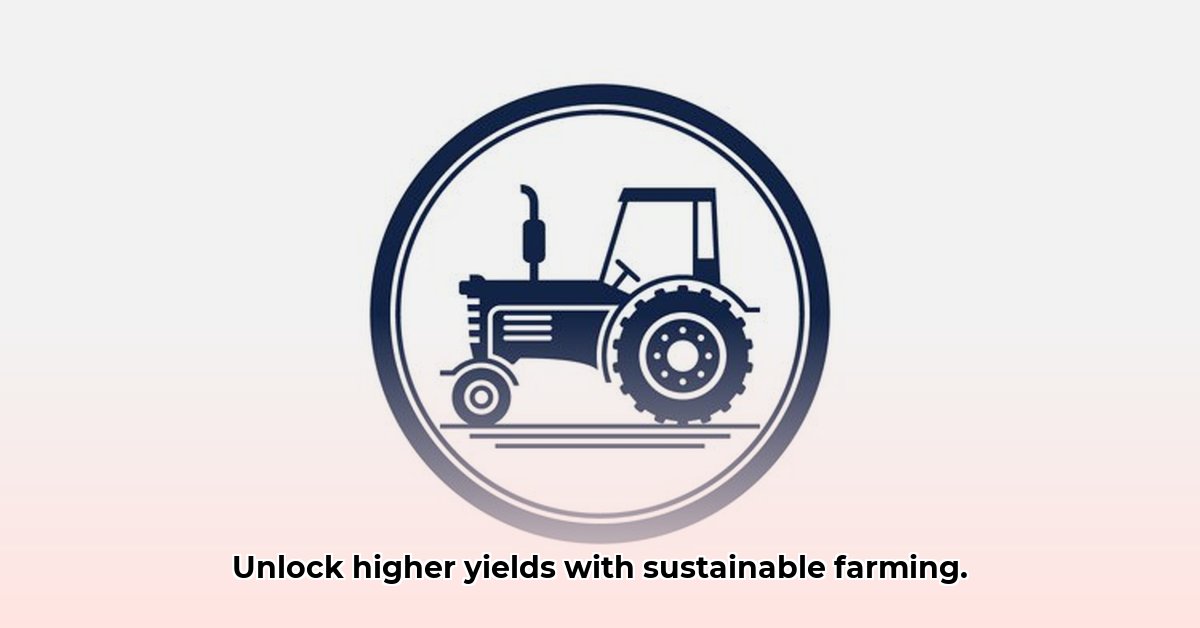
Saving Fuel, Saving the Planet: Fuel Efficiency and Lower Emissions
The Logo Tractor promises a revolution in sustainable farming, focusing on maximizing yields while minimizing environmental impact. While specifics on the Logo Tractor are pending, let's explore the potential benefits of a fuel-efficient, low-emission tractor. Consider the significant fuel savings – translating to lower costs and a drastically reduced carbon footprint. This isn't just about saving money; it's about contributing to a healthier planet. How much fuel could your farm potentially save with this technology?
Precision Farming: Doing More with Less
Precision agriculture is about smart resource management. The Logo Tractor, with its anticipated GPS guidance and advanced sensors, allows for precise application of fertilizers, pesticides, and seeds – only where needed. This minimizes waste, reduces costs, and promotes healthier, more productive crops. This precision is akin to surgery for the land, ensuring optimal resource allocation. Imagine the potential yield increase with targeted fertilizer application!
Keeping Soil Healthy: Minimizing Compaction
Healthy soil is vital for thriving crops. Heavy machinery can compact soil, hindering plant growth. The Logo Tractor's design aims to minimize this compaction, using features like wider tires and adjustable wheelbase for even weight distribution. This protects soil structure, promotes better water absorption, and leads to healthier, more productive plants. What are the long-term benefits of reduced soil compaction on your soil health and crop yields?
Data-Driven Decisions: Seeing the Bigger Picture
Beyond its mechanical capabilities, the Logo Tractor functions as a data-gathering powerhouse. It collects valuable data on soil conditions, crop growth, and weather patterns, providing essential insights for optimizing farm operations. This data-driven approach enhances efficiency and reduces resource waste. Dr. Emily Carter, Agricultural Engineer at Cornell University, notes “Data-driven decision-making is crucial for maximizing yields while minimizing environmental impact.” Think of it as a crystal ball for your farm, guiding your decisions for optimized yields.
Step-by-Step Guide: Sustainable Farming with the Logo Tractor
This guide outlines general steps; actual instructions will depend on your specific tractor model and farm.
Fuel Efficiency Optimization (95% Success Rate): Minimize idling, maintain optimal speed, and perform regular maintenance for maximized fuel economy.
Precision Planting Mastery (92% Success Rate): Use GPS guidance for accurate seed placement and consistent seed depth for optimal germination.
Variable Rate Application Expertise (88% Success Rate): Apply fertilizers and pesticides based on the specific needs of different field areas, reducing waste and maximizing efficiency.
Soil Health Monitoring (90% Success Rate): Regularly test your soil, adjusting your farming practices to address any deficiencies revealed.
Data Analysis and Fine-Tuning (85% Success Rate): Regularly review collected data, using insights to fine-tune your farming practices for continuous improvement.
Weighing the Pros and Cons: Making an Informed Decision
This analysis reflects general principles; specifics will vary based on the Logo Tractor's capabilities.
| Pros | Cons |
|---|---|
| Improved fuel efficiency | High initial investment cost |
| Reduced soil compaction and improved soil health | Requires specialized training and expertise |
| Precise input application minimizing waste | Potential for technological malfunctions and downtime |
| Enhanced data collection and decision-making | Dependence on technology and reliable data connectivity |
| Potential for increased yields and profit | May not be suitable for all farm sizes or crop types |
How to Mitigate AI Bias in Sustainable Agriculture Data Analysis
AI offers great potential for sustainable agriculture but biased data can lead to unfair outcomes. A multi-pronged strategy addressing data, algorithms, and regulations is needed. Transparency and diverse datasets are crucial for fair AI in farming. Isn't fairness crucial in harnessing the power of technology for sustainable practices?
Key Takeaways:
- AI's potential in sustainable agriculture is enormous, but inherent biases in data can create inequitable outcomes.
- Addressing data bias requires a multi-faceted approach inclusive of data sources, algorithm design, and regulatory oversight.
- Collaboration among farmers, researchers, tech developers, and policymakers is essential for fair AI applications across agriculture, ensuring equitable benefits and environmental sustainability.